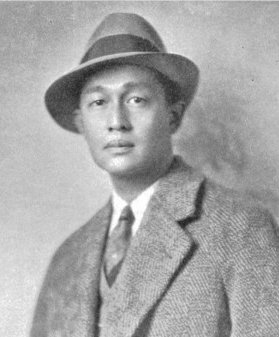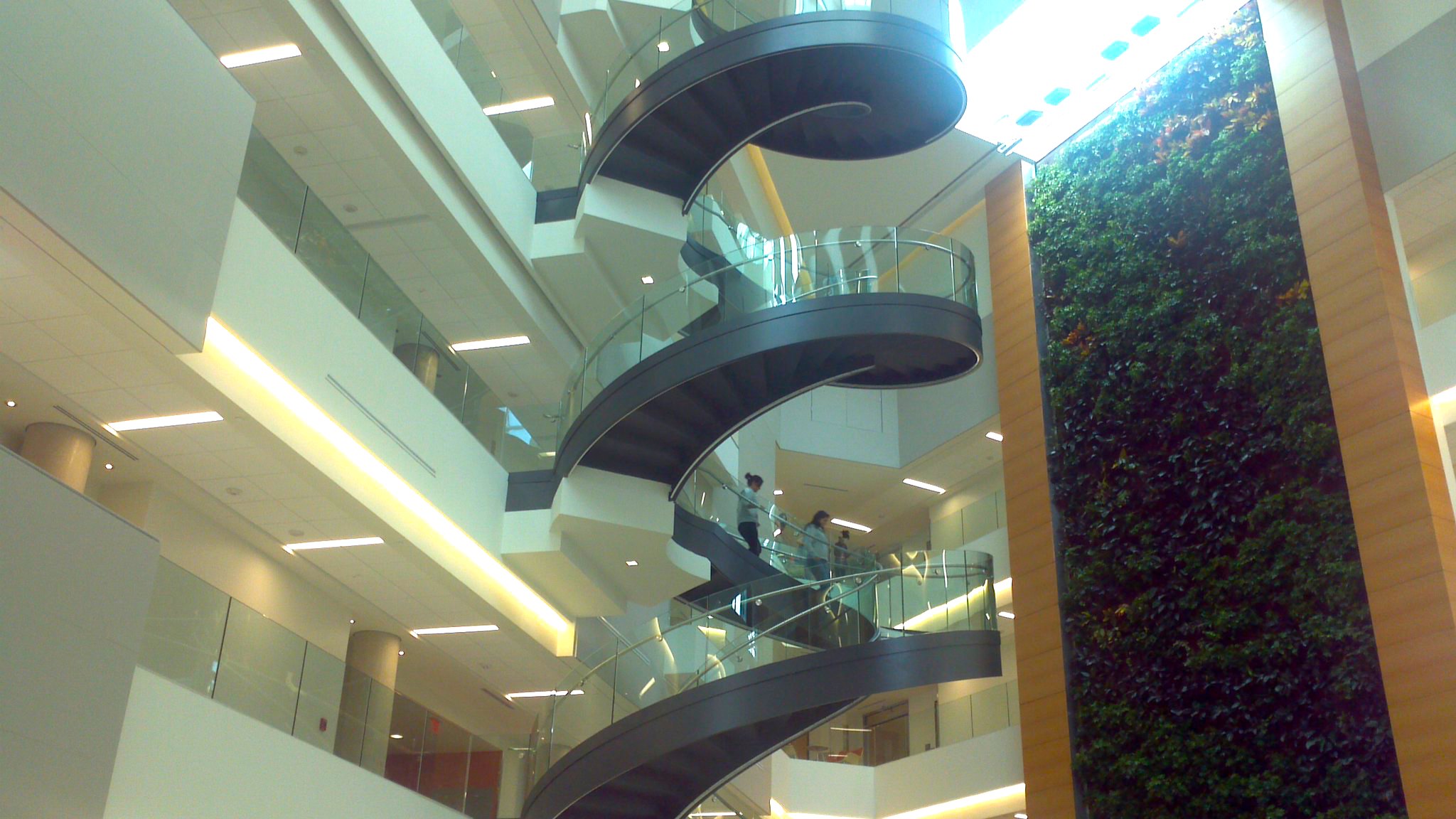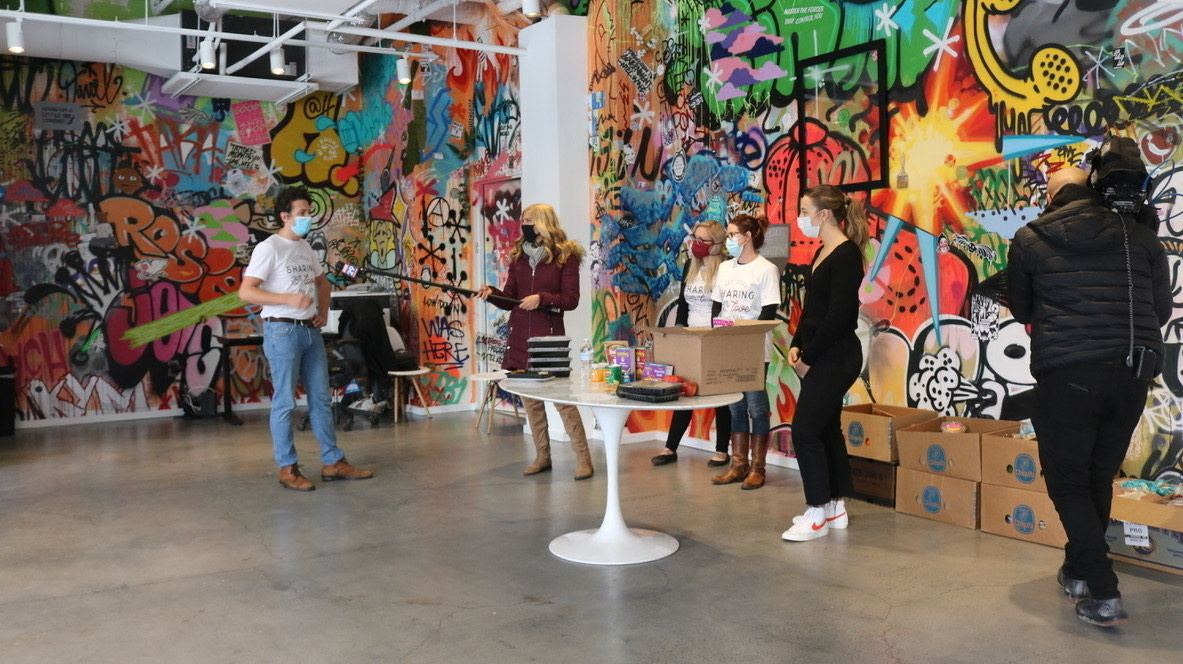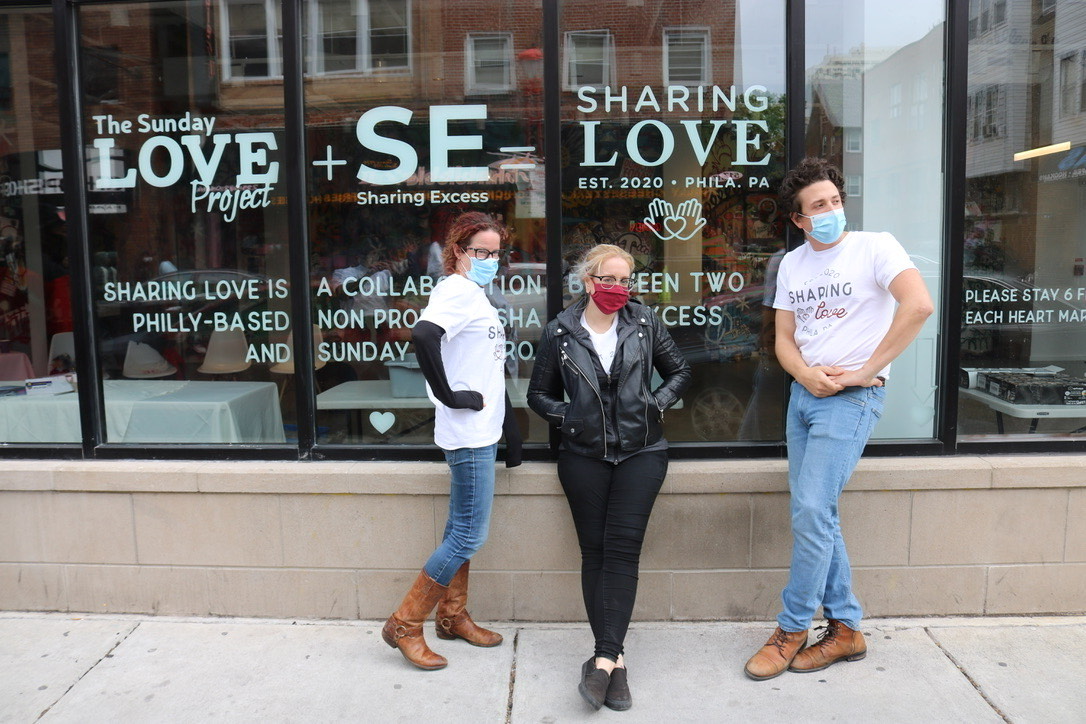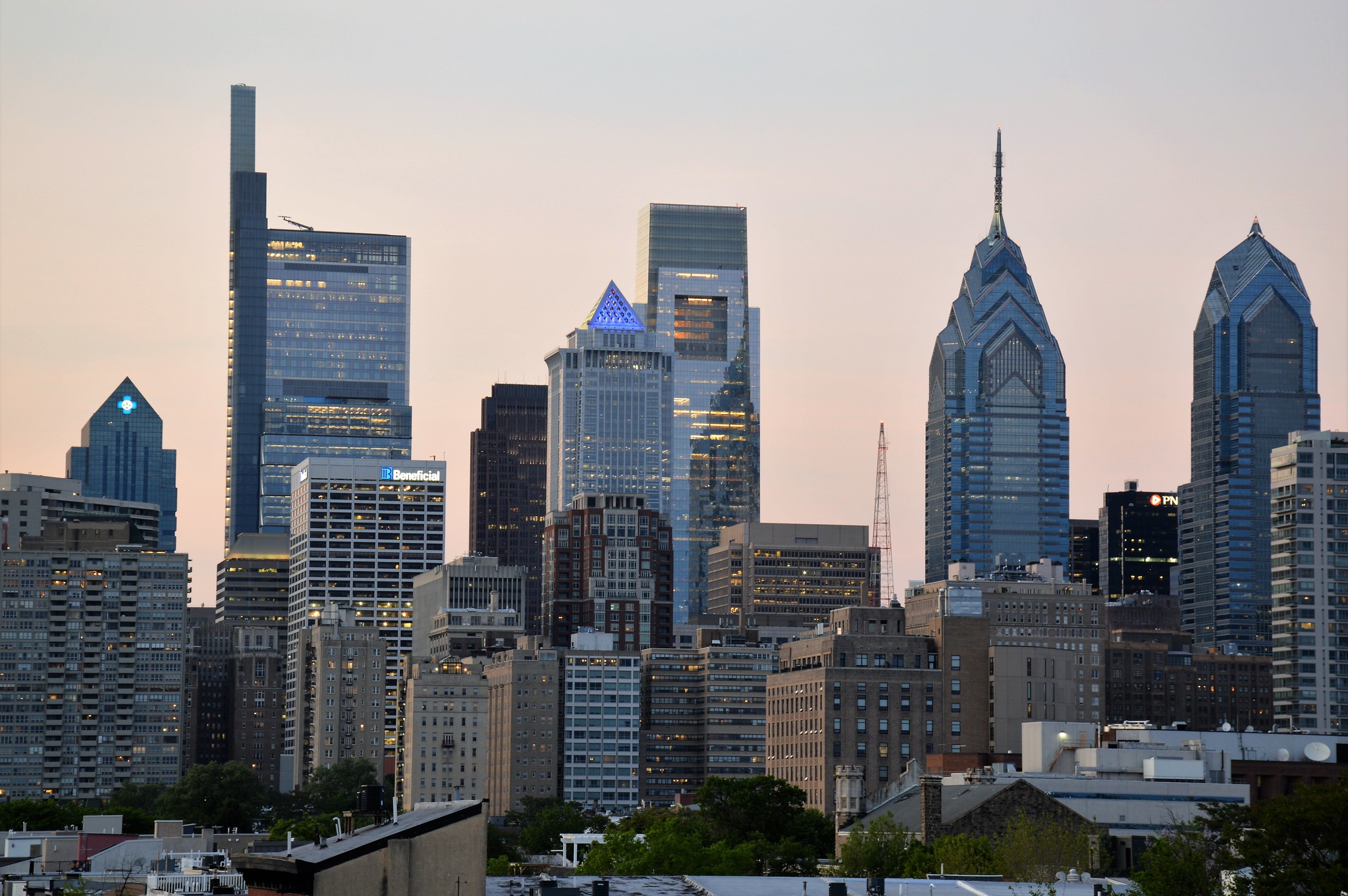
Despite the circumstances, the state of Pennsylvania will still be holding a primary election on Tuesday, June 2. The election, originally meant to be on April 28, was pushed back by Gov. Tom Wolf as the COVID crisis ramped up, along with voter registration deadlines. Amid the COVID-19 crisis, state and city leaders have made various decisions to cut back on polling places and staff while ramping up mail-in ballot efforts.
According to the Inquirer, The Philadelphia Board of City Commissioners released a plan that would cut up to 77 percent of polling locations in the city, with a total of 190 locations. The decision to severely cut polling places was partially made because fewer people are willing to risk their health as poll-workers.
In elections across the country, cities are having trouble filling working positions and finding locations that are able to fulfill social distancing requirements.
However, the consolidation of polling sites poses greater health risks as large amounts of voters will be crammed into fewer locations. It can be presumed that the polling location changes will create further confusion and disenfranchise voters who can no longer simply walk to their local site. As per usual, people will be able to vote from 7 a.m. to 8 p.m. on Election Day.
At the same time, the state’s new mail-in ballot initiative has become a solution for many Pennsylvanians who want their voices heard but also do not want to risk their health. This election is the first time where all voters are eligible to request an absentee ballot and will serve as a test run for the general election in November.
As of Wednesday, over 145,000 people in Philadelphia have requested a mail-in ballot, and it seems that the numbers will continue to grow rapidly. While the date to register to vote has passed, people who are already registered can request an absentee or mail-in ballot up until May 26 through an online application.
Ballots must be received by the 8 p.m. deadline on June 2, so it is imperative that voters mail their ballots with plenty of time to spare. It is also important to note that Pennsylvania holds closed primaries, meaning you can only vote for the party you are registered with.
With that being said, here’s a quick voter guide to what will be on the ballot:
Ballot Questions:
Philly voters will have the opportunity to vote on two proposed changes to the city’s charter.
Question 1: Shall the Philadelphia Home Rule Charter be amended to revise rules pertaining to prohibited activities of appointed City officers and employees, to generally allow such officers and employees to volunteer for state and federal political campaigns outside of work time and without using City resources; to continue to prohibit participation in any political campaign for a City office or Philadelphia-based state office; and to revise penalty provisions pertaining to such restrictions and prohibited activities generally?
As of now, City employees cannot volunteer for any partisan political campaigns, whether that be on the local, state or federal levels, a decision made back in the 1950s when Philly officials were dealing with various corruption scandals. Philadelphia is one of few municipalities to have such stringent rules on employee political activity. While employees are able to outwardly express support for their favored candidate, they are unable to take paid positions on political campaigns.
This number of employees includes over 25,000 people. Should the vote be passed, most City employees would be allowed to campaign for federal and various state campaigns but would still be restricted from participating in local campaigns or for state representatives that Philadelphians would see on the ballot.
Question 2: Shall the Philadelphia Home Rule Charter be amended to create a Department of Labor, headed by a Cabinet-level Director, to enforce City laws that protect Philadelphia workers; to oversee labor relations, such as collective bargaining, with the City’s unionized workforce; to investigate compliance with worker protections set forth in City contracts; and to manage programs concerning City employees; and to create a Board of Labor Standards to review and adjudicate matters arising from such work?
During his administration, Mayor Kenney created a Department of Labor which has served as an organization tool for enforcing worker laws as well as protecting their rights. However, the office stands to be easily eliminated in 2023 once Kenney leaves office. Voting yes would mean, in turn, that Philly’s Home Rule Charter would be modified to permanently include the Department of Labor and expand its power with a seven-person board and a director.
President of the United States:
The race for the President of the United States has essentially narrowed down to incumbent Donald Trump and former vice president Joe Biden. Many of the following names remain on the ballot regardless of the candidates having dropped out. However, one of the candidates who still has a stake in the election is Vermont senator Bernie Sanders, who is encouraging his supporters to still vote for him. The more Sanders racks up his delegate count, the more sway he will have over Biden’s platform at the Democratic convention.
Democratic Primary
- Joe Biden: Former Vice President during the Obama administration, former Delaware senator
- Bernie Sanders: current Senator of Vermont, former Mayor of Burlington
- Tulsi Gabbard: current state representative from Hawaii, veteran
Republican Primary
- Donald Trump: (incumbent) current President of the United States
- Roque de la Fuente: former Democratic candidate for president in 2016, dropped out
- Bill Weld: former Governor of Massachusetts, dropped out
Delegates to the National Conventions:
Voters will be able to select delegates to attend the Democratic or Republican convention. Based on your party registration, you will be able to choose several of the delegates to go represent your preferred candidate in the race. Democrats will be able to vote for up to 14 delegates out of 25, and Republicans will be able to vote for four delegates (who are all committed to voting for Trump.) The Democratic delegates are either committed to Sanders or Biden.
PA Attorney General:
The state’s Attorney General is tasked with handling the legal matters of the state, split up into four main divisions — handling civil, public protection, criminal cases, among other responsibilities. Serving as the largest prosecutor in Pennsylvania, the Attorney General position is a powerful role in the state government.
Josh Shapiro is the current PA Attorney General and seeks to keep his position in the upcoming election. Shapiro is best known for prosecuting the case against the sex abuse scandals occurring within the Catholic Church. The attorney general exposed the 300 priests involved in abusing around 1,000 victims, blaming the archdiocese for a lack of action. Shapiro is also known for a scandal involving The Philadelphia Inquirer back in late 2019, in which he encouraged the local paper to be more critical of Philly District Attorney Larry Krasner. Of course, this scandal represents a challenging power dynamic between the two leaders as Krasner has advocated against mass incarceration, much to the behest of Shapiro.
Heather Heidelbaugh, his Republican competitor, has called Shapiro a “show dog” only willing to take on cases that would raise his profile. As a Pittsburgh attorney and former council member, Heidelbaugh is Shapiro’s sole competitor in the race.
Democratic Primary
- Josh Shapiro (incumbent)
Republican Primary
Auditor General:
The Auditor General of the state generally serves as the fiscal, government spending watchdog. As a seat for the position has opened up, plenty of Democrats and Republicans are vying for the spot.
Democratic Primary
- Christina Hartman: Nonprofit consultant, former candidate for congress
- Rosie Davis: Long time public accountant
- Scott Conklin: Current representative of PA’s 77th District
- Nina Ahmad: Former deputy mayor for public engagement, former president of Philly’s National Organization of Women chapter
- Michael Lamb: Current Pittsburgh City Controller
- Tracey Fountain: Drexel alum, currently serves as the Audit Bureau Director for the auditor general’s office
Republican Primary
- Timothy DeFoor: Recently elected to second term as Dauphin County Controller.
Pennsylvania Senate
For the PA Senate, there are four senators up for re-election, only one of whom is being challenged in the 1st District. Progressive Nikil Saval is challenging incumbent Larry Farnese in what seems to be a tight race. Saval is a champion of progressive politics, having co-founded Reclaim Philly and organized for the Sanders campaign in the past. Running on policies like a Green New Deal for PA, rent control and affordable housing, Saval’s platform represents a breath of fresh air in Philly politics. Incumbent Larry Farnese has been in office since 2009, having been successful in advocating for affordable housing, a PA run on renewable energy and advocacy for women and LGBTQ groups.
1st District
- Nikil Saval
- Larry Farnese (incumbent Democrat)
3rd District
- Sharif Street (incumbent Democrat)
5th District
- John Sabatina Jr. (incumbent Democrat)
7th District
- Vincent Hughes (incumbent Democrat)
Pennsylvania House of Representatives:
There are more open seats in the House of Representatives as these positions are up for reelection every two years. Philly has 26 districts that are represented in the House, and there are too many candidates running for office to list, so here are some election highlights:
182nd District
This district faces a three-way race as incumbent Democrat Brian Sims battles Marisa Shaaban and Drew Murray. Sims is currently seeking a fifth term, having a long history of being outspoken on LGBTQ rights but also being involved in a viral scandal last year. Shaaban, also a Democrat, has focused her platform around issues of public education and healthcare. Republican Drew Murray is running on anti-Kenney policies, such as repealing Philadelphia’s position as a sanctuary city and preventing the implementation of safe injection sites.
184th District
Republican Lou Menna IV is running against incumbent Democrat Elizabeth Fielder in the South Philly district. Fielder is a former WHYY reporter and has also embraced progressive positions in her previous term, introducing the Fair Workweek Bill to give workers predictable schedules and pays. No information is out about Fielder’s competitor, Lou Menna.
188th District
The 188th District represents West Philly and University City, where Drexel is located in particular. The district faces a competitive race as three people are running to push out Democratic incumbent James Roebuck.
Among the contenders are Democrats Gregory R. Benjamin, Rick Krajewski and Karen Dunn. Congressman Roebuck has represented the district since 1985, becoming one of the longest serving Congress members in the city. Roebuck can be considered as part of the state’s Democratic establishment, being propped up financially by many fellow leaders. Benjamin has been involved in community affairs at the West Philadelphia Mennonite Church and promises to address issues of community safety, mental health and economic improvements.
Rick Krajewski, like Nikil Saval, has roots in the 2016 Sanders movement in Philadelphia, where he organized with Reclaim Philly. His platform consists of criminal justice reform, a Green New Deal for PA and addressing the city’s opioid crisis. Karen Dunn has been involved in her district through incumbent Roebuck’s office for the past 20 years and supports housing reforms, prison reforms and a Green New Deal as well.
For more information on the many other candidates running for office, check out the Committee of Seventy’s website for an expanded voter guide.

